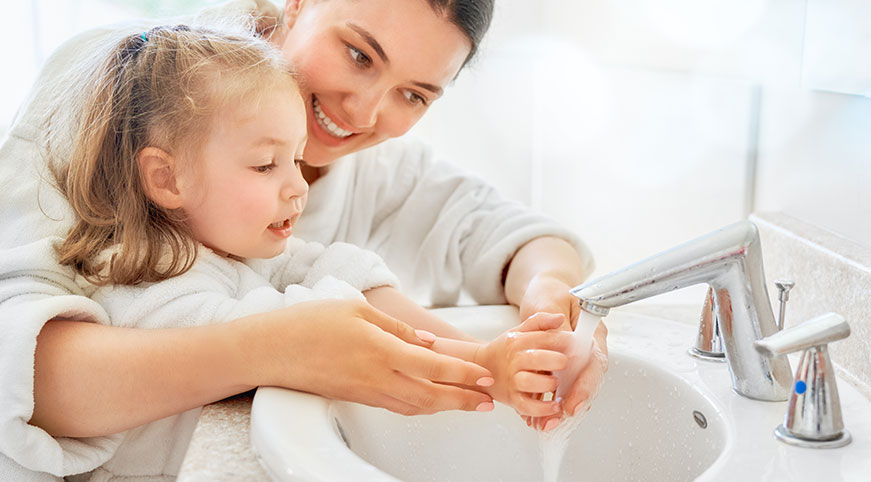Posted by Suman Radhakrishna
With life threatening diseases like Influenza and novel Coronavirus on the rise, hand hygiene is the best preventive measure to curb the spread of germs that cause these infectious diseases. By practicing frequent hand hygiene techniques like washing and sanitizing hands, you can remove germs and avoid getting sick.
Why Is Handwashing Important?
Hand hygiene reduces contamination and spread of bacteria that cause Gastroenteritis and respiratory tract infections. We frequently touch our face and mouth after touching other people or surfaces contaminated by bacteria and viruses. Person-to-person transmission of infection can often be controlled with the use of alcohol hand sanitizer and intermittent hand washing, when hands are not visibly dirty.
When Should You Wash Your Hands?
Hand washing has been known to reduce spoilage of food due to contamination during preparation. It is also recommended to wash hands after handling raw meat, poultry, sea food, and uncooked eggs to reduce the transfer of infectious organisms to other food groups.
Use of hand sanitizer reduces our need to wash hands frequently. Hand washing is recommended over use of alcohol hand sanitizer in the following instances:
- Hands are visibly dirty
- During food preparation and before eating
- After the use of bathroom, changing diapers, and cleaning human/animal waste
- Before using makeup, especially around eyes and lips
- In-between multiple hand sanitizer use
After using the hand sanitizer many times, the gel often leaves a residue which needs to be washed off.
How Do You Wash Your Hands Correctly?
Water and soap are two key ingredients to practice proper hand washing procedure. Soaps do not necessarily need to be antibacterial—it can be liquid or bar soap. Bar soap containers should allow for drainage of excess water collected in the dish/rack.
- Wet your hands with clean water.
- Apply sufficient amount of soap and lather well. When using liquid soap, follow recommendations from the manufacturer. If you are using bar soap, apply over the palms, back of the hands, wrist, and under finger nails.
- Rub both hands together rapidly, paying attention to spread soap in between fingers. If possible, remove all jewelry before washing hands to ensure that you clean the area under them.
- Rinse hands thoroughly with running water to remove soap completely.
- Dry your hands with a clean towel.
Hand hygiene is an easy and effective way to protect your health and prevent the spread of infectious diseases. Clean Hands Always!
Go to our Blog
 ENGLISH
ENGLISH KOREAN
KOREAN Spanish
Spanish RUSSIAN
RUSSIAN Armenian
Armenian FILIPINO
FILIPINO Chinese (Simplified)
Chinese (Simplified) Chinese (Traditional)
Chinese (Traditional)

최신댓글